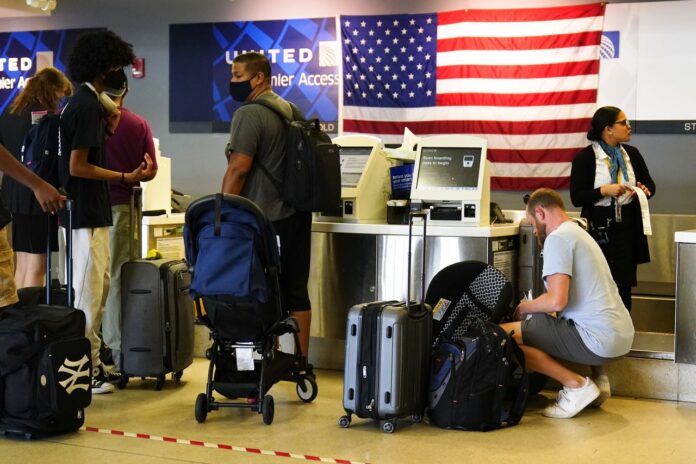With travel prices soaring, customers might be tempted to pick the cheapest base option they find. But the base price of airfare and hotels represents only a fraction of the total costs. A parade of add-on fees await any traveler trying to navigate the checkout process, ballooning the final price. Experts call it “drip pricing.”
“It’s called ‘drip’ because surcharges and fees drip out throughout the shopping process,” says Vicki Morwitz, a professor of business and marketing at the Columbia Business School.
Customers tend to overpay when prices are presented this way, according to a study conducted by Morwitz and her colleagues.
“Customers are more likely to select an option that looks cheaper upfront. Even when they later realize it’s more expensive than they anticipated, they’re more likely to stick with it,” she says.
From resort fees and boarding-pass printing fees (yes, that’s a thing), companies were padding their bottom lines with these add-ons even before inflation soared this year. Avoiding them requires diligence and know-how.
Hotel resort fees
Resort fees, which are sometimes called “facility fees” or “destination fees” purportedly cover amenities like internet and pool access. But because the fees are mandatory, they act as hidden costs for booking a room that don’t appear until final checkout.
“Resort fees are the only travel fee that has no correlation to any actual service or product,” says Lauren Wolfe, counsel at Travelers United, an advocacy group for travelers. She’s also the founder of the website Kill Resort Fees. “If your hotel charges for parking, if you don’t have a car, you don’t pay to park. Hotel resort fees, though, are almost impossible to get out of even if you decline amenities.”
Here are some tips to minimize these pesky fees:
- Pay with points at brands that waive resort fees for award stays, like Hilton and Hyatt.
- Ask the front desk to waive the fee. “It is probably not likely to work but you can always ask nicely,” Wolfe says.
- Look for a search option on a hotel website or app to “show rate with taxes and fees” or similar. This will help compare real prices directly and avoid the hassle of clicking through to the final checkout windows.
Airline seat selection fees
Despite a recent uptick, the cost of airfare has actually been dropping for years. That might sound like good news, but that hides a hidden trend: Airlines have been gathering more of their revenue from add-on fees while lowering the base price of airfare.
Charging for seat selection is one of the newest, and most galling, tricks. These fees usually appear during checkout and often seem mandatory.
These fees are almost always avoidable, though. Simply skipping the seat selection process and letting the airline assign a seat at a later date is often the wisest choice if you don’t mind the risk of getting stuck with a middle seat.
Airlines want customers to pay these fees, of course, and often share scary warnings about the dangers of not picking a seat. But skipping seat selection doesn’t increase your chances of getting bumped from a flight.
And note that some airlines, such as Southwest, don’t charge for seat selection.
Vacation rental cleaning fees
Everyone wants a clean vacation rental, but nobody wants to pay exorbitant cleaning fees that can exceed the base cost of the rental.
It’s almost impossible to avoid these fees outright, as most properties carry them. But it is possible to avoid paying too much.
Most vacation rental platforms, including Airbnb, offer some option to compare “total price,” which includes cleaning and other fees. It isn’t always easy to filter and sort on total price, but seeing this price on the search screen rather than the checkout screen can vastly simplify comparison shopping.
And note, unlike resort fees — which are usually added to every night booked — cleaning fees are applied once. A $100 cleaning fee might be intolerable for one night but reasonable for 10. So, the best way to avoid cleaning fees on short stays is usually to book a hotel instead.
Don’t get dripped
The underlying psychology of add-on fees is simple: We get lured in by the low sticker price, then grudgingly accept the extra costs.
Countering this bias is equally simple in theory, if not in practice. Ignore sticker prices and compare final prices only — taking all fees into account. And avoid as many optional fees (such as airline seat selection) as possible.
More From NerdWallet
Sam Kemmis writes for NerdWallet. Email: skemmis@nerdwallet.com. Twitter: @samsambutdif.
The article The Worst Hidden Travel Fees and How to Avoid Them originally appeared on NerdWallet.










